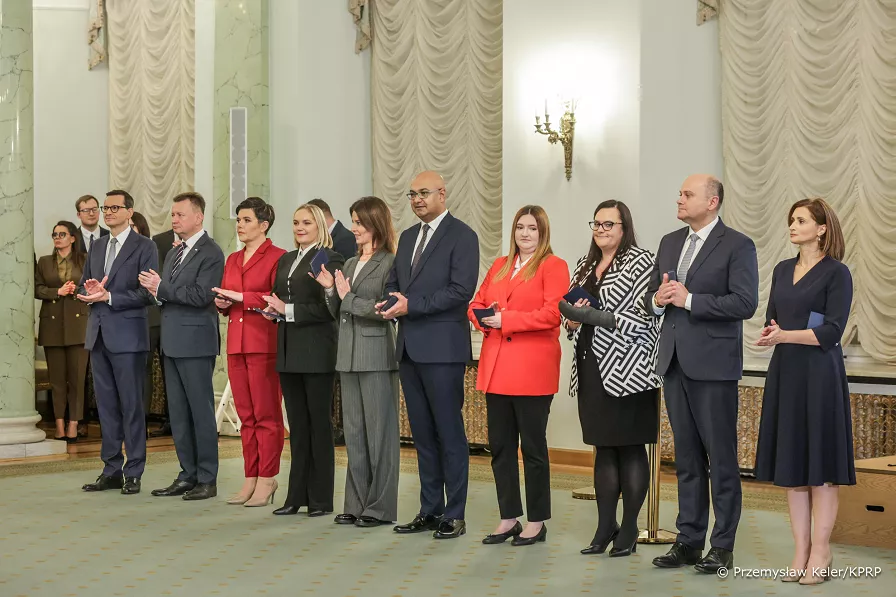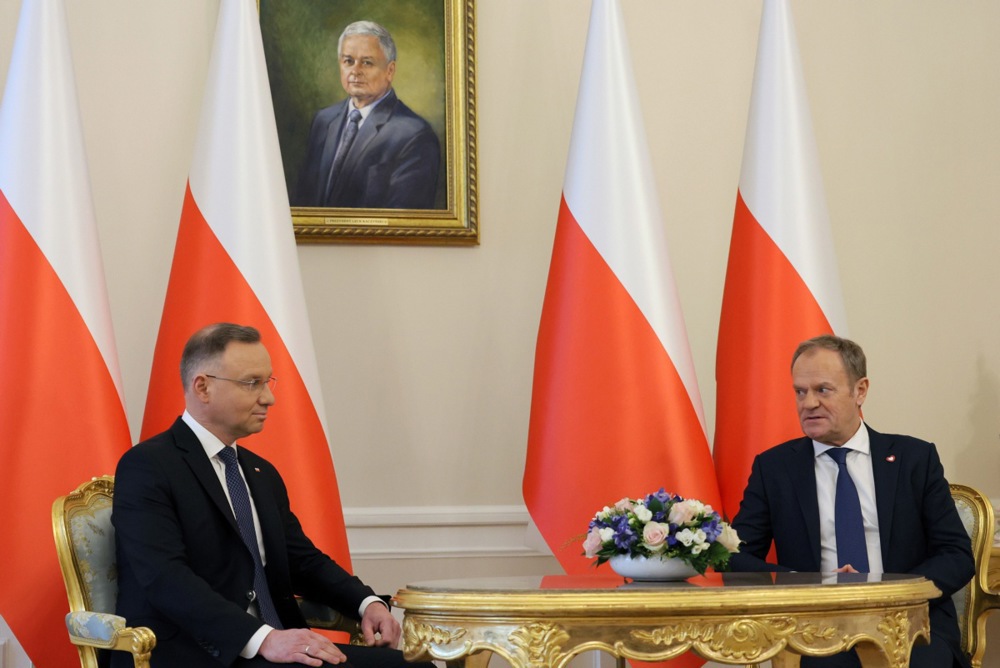The leader of the Polish Conservative (PiS) party, Jarosław Kaczyński, has slammed the actions of the newly-installed justice minister Adam Bodnar whom, he said, tried to take over the offices of the National Prosecutor without the required consent of President Andrzej Duda.
Kaczyński said the Government led by Prime Minister Donald Tusk was effectively “staging a coup and committing treason”.
Poland was witnessing “a creeping coup”, he said in front of the offices of the National Prosecutor late on January 24.
“This is a crisis, but one which is defined in law – an attempt to change the system of government by force – and the penal code envisages imprisonment for a minimum of 10 years up to a life sentence,” he added.
PiS staff briefed the press that they were informed Bodnar had attempted to enter the National Prosector Dariusz Barski’s office but was denied assistance and Barski refused to resign.
Kaczyński called on Duda to use his powers to organise a meeting of the National Security Council and of the Cabinet Council for ministers to explain their actions and “restore the functioning of the Constitution and the rule of law in Poland”.
He reminded the President that as Head of State it was his duty is to protect the Constitution and to stop those engaged in trying to “overthrow” it.
The PIS leader also said Tusk was aware of what he called his “law-breaking” but alleged Tusk had the “support” of Germany and European Union institutions. That meant, Kaczyński said, the Prime Minister was emboldened in taking his present course and therefore both Polish democracy and sovereignty were “in danger”.
On January 25 Kaczyński also accused Tusk of being personally responsible for the fact that one of the two parliamentarians who had begun serving prison sentences and in protest held a hunger strike, was force-fed through a nasal tube which Kaczyński said was “torture” and would be reported to the European courts.
He also said that since the ruling majority were breaking the constitution a way should be found to dismiss the government, appoint a temporary one and dissolve parliament so fresh elections can be held. However, according to the constitution the government can only be dismissed by a constructive vote of confidence in parliament and PiS does not have the votes to achieve that, nor can the president dissolve parliament unless parliament fails to pass a budget.
The ministry of justice on the evening of January 24 issued a communique in which it denied that force had been used to enter Barski’s offices and claimed Bodnar had a right to be in the building as part of his own duties as Prosecutor General.
Warsaw police have also denied being involved regarding any entry of the building.
The National Prosecution Service is, according to Polish law, appointed by the minister of justice with the approval of the president and any recall of a national prosecutor has to be approved by the head of state.
Observers say the dispute is the latest example of the Government attempting to by-pass the President and “creatively interpret” the law.
The Bodnar incident comes after culture minister Bartłomiej Sienkiewicz in December effectively took over the public media without changing legislation as required.
That lead to protests, the vocal disapproval of Duda and the National Court Register (KRS) refusing to recognise either the management appointed by the minister nor the liquidators brought in.
Many say such moves are the result of the Government expecting the President would veto any such legislation it put forward regarding public media or judicial reform.
They point out the ruling majority in Parliament does not have the required three-fifths “super majority” to overturn any such vetoes.





